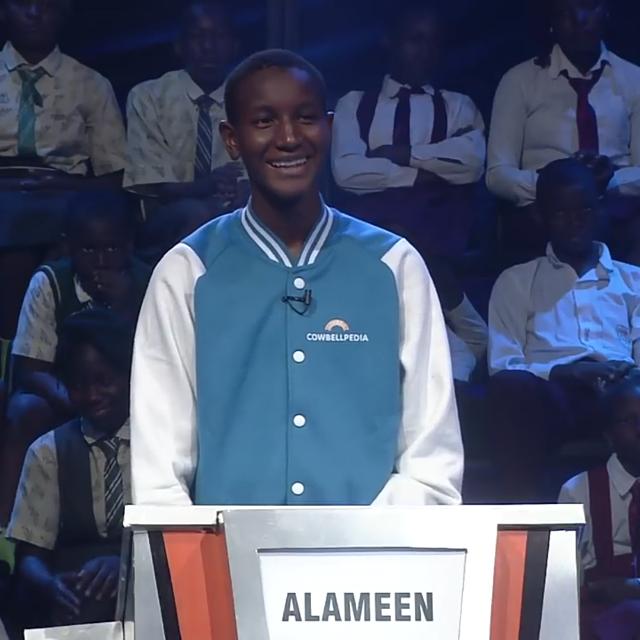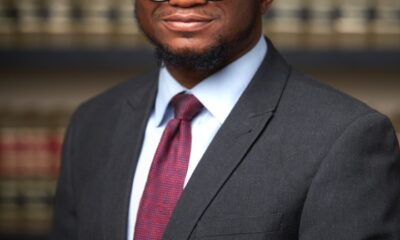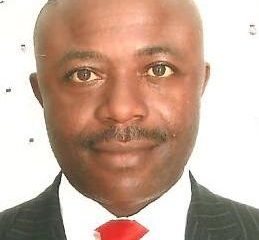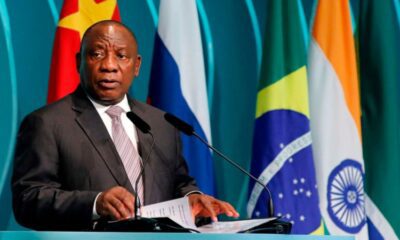Economic Issues
A Reflection on the Proposed 2020 Education Budgetary Allocation -By Al-Amin Abubakar Adam

If title is appreciated, age would be respected, and knowledge would be revered. When acting in a truthful manner is taken as behavior, saying the truth would be a norm and accepting the truth would be a virtue. That is how life trends, with everything given its deserved priority. However, in the case of Nigeria, none of these holds true. The undiagnosed illness of misplacement of priority has become the bane of our existence. While Big Brother Naija winner gets away with N60 million, our best graduating students go home with Apple laptops; while children learning in Tsangaya sleep on empty stomach, we build multimillion dollar religious sectarian headquarter in Abuja, meanwhile the religion is starving to death.
This time around, it is neither concerning the entertainment industry nor religious affairs. Rather, it is concerning the paltry budgetary allocation to the Ministry of Education by the Father of the Nation. It is about how we, as a nation, have consciously relegated our educational system to be a damp squib. It is about how we deliberately opt to continue eating the humble pie by treating Human Capital Development (HCD) lightly.
On the fist list of the budget, statutory transfer; UBEC, as the only educational agency placed there, got N111.79 billion. Though, its establishment act of 2004 constitutionally earmarked 2% of the total budget for it, this amount corresponds only to 1.08% of the proposed N10.33 trillion 2020 budget.
Coming down to capital expenditure, N48 billion was allocated to Ministry of Education. If we add this amount to the N111.79 billion for UBEC, it amounts to N159.79 billion. This amount represents 6.7% of the N2.46 trillion earmarked for capital expenditure (inclusive of capital expenditures on statutory transfer).
However, this is not all the budget. There is recurrent expenditure which Mr President, arguably to avoid gaffe, tactically and deliberately refused to break down. But if he had, it would be as usual — a long list of disappointment. This is because, even in 2017 and 2018, when the capital expenditure for education was N56 billion and N62 billion respectively — a little bit higher than that of this year — the current expenditure was only N398 billion and N544.27 billion respectively, the total budget for education (inclusive of that of UBEC) was only 7.38% and 7.03% of the total budget which is nothing to write home about.
Of course, this is not just an issue to fret over but to condemn in totality. UNESCO recommends 15-20% of the total expenditure of a developing nation be allocated to education. While most other developing nations have adopted it, Nigeria is still wallowing in a realm of ad nauseam insensitivity. For example, according to the data on World Bank website, Ghana allocated 20.1% of her budget to education; South Africa, 18.9%; Kenya, 17.9%; Morocco, 17.3%; just to mention a few. But Nigeria’s highest budgetary allocation to education, since the return to democracy in 1999, was 9.94% in 2014. While the average is 7.4% (According to The Punch). Among E9 countries ( A 9-member league of nations that have the highest rate of illiterates in the world), Indonesia has 20.5% of her budget allocated to education; Mexico, 17.9%. To cut the story short, only Nigeria among them has a single digit budgetary percentage to her education.
In May 2019, the Minister of Education, in his valedictory speech, said, “Sir, I beg you that the next education minister should not get anything less than N1 trillion.” Some members of the NEC gave a demeaning laughter to his statement. He had to point blankly reply them, “Believe me! The whole world is going knowledge economy, development of human capital, technology and innovation. Nigeria is left behind even in Africa. As I kept saying, what we needed was N1.4 trillion but what we got was less than half trillion. I just hope you’ll save education Sir.” Yet here we are with the 2020 budget but the drum echoing the same tune.
Another thing to note from the discussion above is, the laughter of the NEC members vindicates the facticity of the statement that the substantial funding of education is not in the good books of the landlords of the country. In March 2019, Bola Ahmad Tinubu, at the colloquium to celebrate his 63rd birthday and in front of President Buhari, said, “The single most important sector for the government’s focus is infrastructure.” This shows that the Lilliputian thought of the Messiahs of the country to relegate Human Capital Development (Education, Health and Skills) has beggared description. Undoubtedly, this is why poor funding of education — and health of course — has remained insurmountable over the years.
The analogy that seems to be vague to those at the helm of affairs is that, while we dearly need to fix our poor infrastructure, we also dearly need to fix our even poorer educational system and healthcare. While infrastructure sustains long, human capital sustains even longer. While we have bad, dilapidated and unsustained-optimally infrastructure, we do not have only hoverer-in-danger but also abysmal challenge facing educational system (the flagship of HCD) due to lack of funding; we suffer from incessant time stagnating strikes; we have the highest number of out-of-school children in the world; we (our educational system) are wallowing at the rank of 25th even in Africa; we, according to the Former Chairman Senate Committee on TetFund, lose $2 billion annually to paying school fees abroad; and the list continues.
Moreover, the substantial funding of education (fixing our educational system and educating all) will not only be the perpetual answer to curbing the ever-and-anon ubiquitous terrorism in Nigeria but also be a shortcut way of fixing the endeared infrastructure — and of course the overall development of the country. The story of the Asian Tigers (South Korea, Singapore, Taiwan and Hong Kong) is a clear justification to that. Those countries are among the most resource-poor countries in the world — if not the most — but paradoxically, they lifted themselves from the list of 3rd world to that of developed countries within very short period of time. How did they make it?
The former Prime Minister of Singapore, Lee Kuan Yew, who spearheaded the journey of Singapore had the answer for us. In his book, From 3rd World to First: The Singapore Story 1965-2000, he wrote, “Trained talent is the yeast that transforms a society and makes it rise.” That was the hallmark of his leadership. He allocated 20% of the country’s budget to education. He developed the country’s educational system to the extent that even the US and the UK visit them to learn. Singapore’s Mathematics is a peculiar course that has been adopted all over the world. Today, Singapore is more developed than the US and the UK.
But Nigeria has, for long, been wallowing in a whirlpool of miasma that beclouds its sensitivity: when the world gave itself a target to reduce extreme poverty level by 2015, Nigeria took it lightly. Whilst the world poverty level was dropping down to its fall to 12% by 2015, Nigeria’s one was fluctuating to its reach to 80% in 2017 (African Development Bank Statistics). The same way, whilst some countries were reducing their number of out-of-school children to meet the UN’s Millennium Development Goals (MDGs) by 2015, our out-of-school children skyrocketed to 10.5 million by 2017. And now, the 2030-targeted UN’s Sustainable Development Goals (SDGs) were launched 5 years ago, with no improvement up to now in Nigeria, we are still not committed to allocate enough amount to meet the goals.
This is why, sometimes, I do not see challenges confronting Nigeria, but Nigeria confronting challenges. Because, as in this case, it is a conscious and deliberate descent to a whirlpool of avoidable self created troubles. Of course, sometimes, Nigeria does not look like a problem looking for a solution, but a solution looking for a problem. Nigeria needs to wake up now!
The clock is ticking.
Al-amin Abubakar Adam has just finished secondary school and got admitted to study MBBS at ABU, Zaria. He writes from Azare, Bauchi State.




















